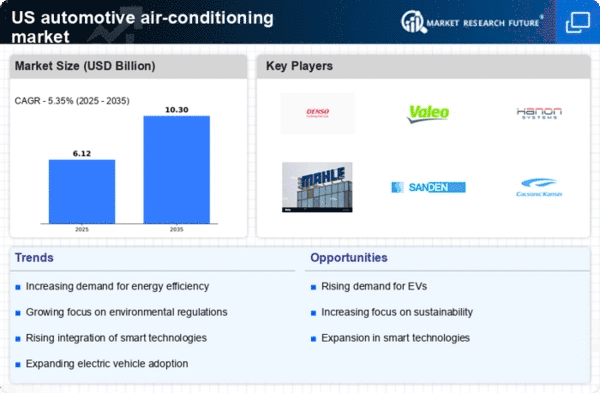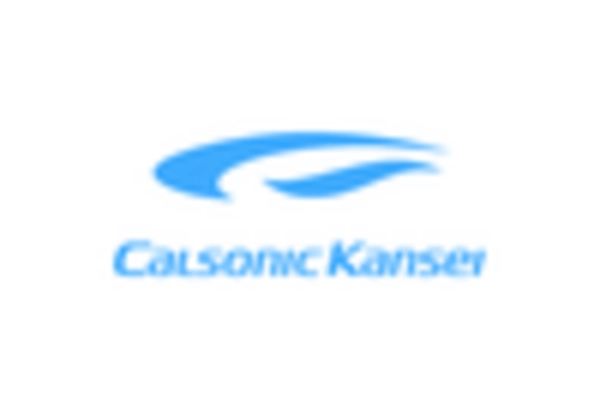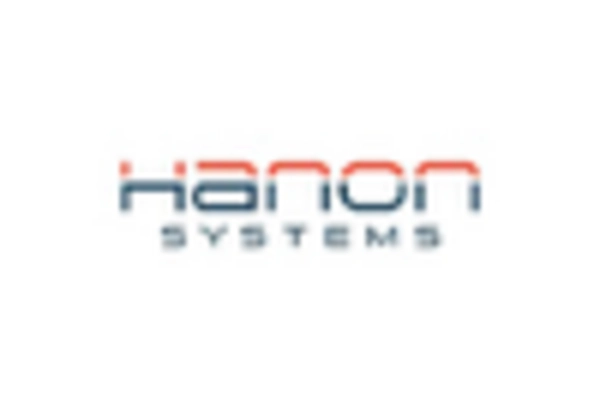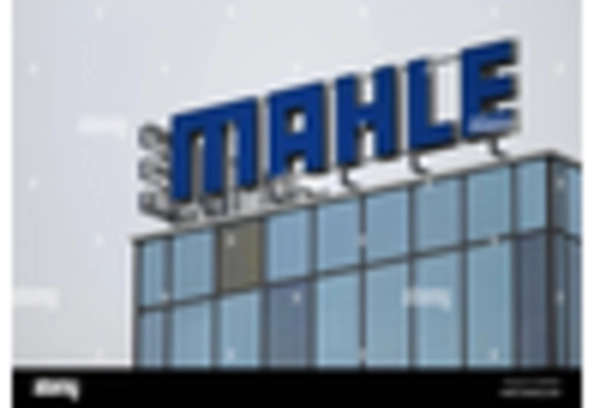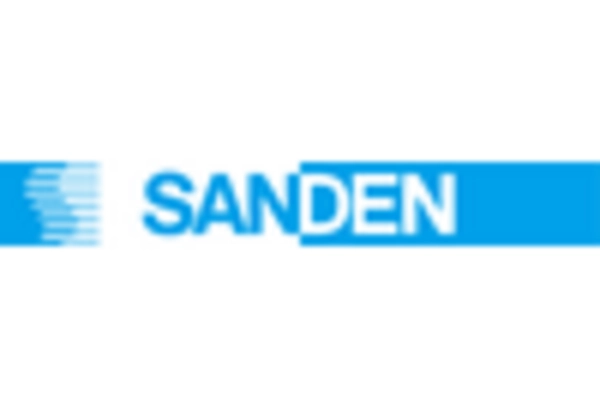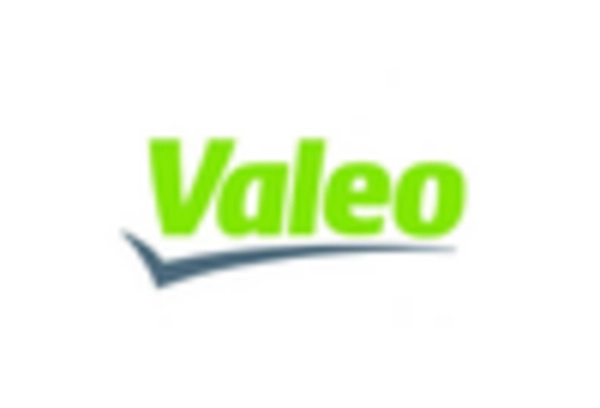Growing Awareness of Health and Wellness
The automotive air-conditioning market is increasingly influenced by a growing awareness of health and wellness among consumers. As individuals become more conscious of air quality and its impact on health, there is a rising demand for air-conditioning systems that incorporate advanced filtration technologies. These systems are designed to improve indoor air quality by reducing allergens and pollutants. In 2025, it is expected that nearly 40% of new vehicles will feature air-conditioning systems with enhanced filtration capabilities. This trend reflects a broader societal shift towards prioritizing health and wellness, compelling the automotive air-conditioning market to innovate and provide solutions that align with these consumer values.
Increased Focus on Vehicle Electrification
The automotive air-conditioning market is witnessing a shift towards vehicle electrification, which is reshaping the landscape of air-conditioning systems. As electric vehicles (EVs) gain traction in the US market, the demand for efficient and effective air-conditioning solutions tailored for EVs is on the rise. Unlike traditional internal combustion engine vehicles, EVs require specialized air-conditioning systems that can operate efficiently without compromising battery performance. By 2025, it is anticipated that the share of electric vehicles in the automotive market will exceed 25%, necessitating a corresponding evolution in the automotive air-conditioning market to accommodate these new technologies and consumer expectations.
Technological Advancements in HVAC Systems
Technological advancements play a crucial role in shaping the automotive air-conditioning market. Innovations in heating, ventilation, and air-conditioning (HVAC) systems are driving improvements in performance and efficiency. For instance, the integration of variable refrigerant flow (VRF) technology allows for more precise temperature control and energy savings. In 2025, it is projected that vehicles equipped with advanced HVAC systems will account for over 60% of the market share. This trend indicates a growing recognition of the importance of efficient air-conditioning solutions in enhancing overall vehicle performance. The automotive air-conditioning market must continue to embrace these technological advancements to meet consumer expectations and regulatory requirements.
Regulatory Pressure for Emission Reductions
The automotive air-conditioning market is significantly influenced by regulatory pressures aimed at reducing greenhouse gas emissions. In the US, stringent regulations are being implemented to limit the environmental impact of refrigerants used in air-conditioning systems. The Environmental Protection Agency (EPA) has established guidelines that encourage the adoption of low-GWP (Global Warming Potential) refrigerants. As a result, manufacturers are investing in research and development to create air-conditioning systems that comply with these regulations. This shift not only addresses environmental concerns but also opens new avenues for innovation within the automotive air-conditioning market, potentially leading to the introduction of more efficient and eco-friendly systems.
Rising Consumer Demand for Comfort Features
The automotive air-conditioning market experiences a notable surge in consumer demand for enhanced comfort features within vehicles. As consumers increasingly prioritize comfort during travel, manufacturers are compelled to innovate and integrate advanced air-conditioning systems. This trend is reflected in the growing sales of vehicles equipped with sophisticated climate control technologies. In 2025, it is estimated that approximately 70% of new vehicles sold in the US will feature advanced air-conditioning systems, indicating a significant shift in consumer preferences. The automotive air-conditioning market must adapt to these evolving demands to remain competitive, as consumers seek vehicles that provide optimal comfort in varying weather conditions.


